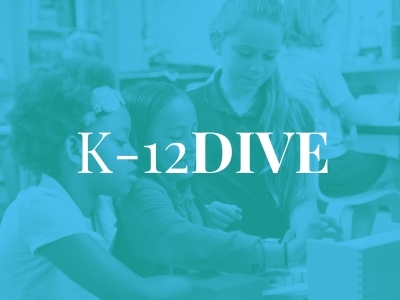Realignment and Relevance: CTE Programs and Generation Z
Topics

Today’s learners face an uncertain present and a rapidly changing future that demand far different skills and knowledge than were needed in the 20th century. We also know so much more about enabling deep, powerful learning than we ever did before. Our collective future depends on how well young people prepare for the challenges and opportunities of 21st-century life.
A high school student suggests CTE can become more relevant to his generation by connecting career education with college prep.
High school students go through a great deal to prepare for college. We take SAT and ACT exams, visit colleges, and endure a multi-step application process, all for the mere chance of getting into a university of our choice. I, along with most of my peers, have spent most of my junior year of high school preparing for these things, and we continue to work hard into our senior year. Many of us have uncertainties about what we want to do with our careers, but we are still willing to invest four years of our lives and considerable money to earn a college degree.
Career and College for Gen Z Students
High school students like me, known as Generation Z, care deeply about our futures and what jobs we will have. We almost unanimously believe that college is the ideal pathway in our journey to success. A study by Barnes & Noble College confirms this when it found that of "…current middle and high school students from across the country, more than 89 percent of respondents rated a college education as valuable. For them, college is seen as the pathway to a good job.”
While a minority, there are some students who do not aspire to go to college. Some go into the military. Others seek to join the workforce immediately after graduating high school and earn money over the next four years of their lives instead of spending money on college. They begin their careers in jobs which require only a diploma or certificate rather than a degree. That is where Career and Technical Education (CTE) comes in.
What CTE Programs Offer
CTE programs are available to high school students and offer "…more specialized instruction… that will help them secure employment or pursue further education” (National Assessment of Career and Technical Education: Final Report to Congress, 2014). As Brian Jacob notes in a recent Brookings report on CTE, most school districts—95 percent—provide resources for these programs, which is great thing, but over the years these programs have been struggling with declining popularity.
As noted in the U.S Department of Education’s 2017 “First Look” report, CTE programs offer students "career pathways" and the opportunity to earn income earlier in life. However, many Gen Z high school students like me do not participate. The question is why.
CTE versus College
One answer is college. When it comes to college enrollment, the U.S. Department of Education “The Condition of Education Report” states that "[b]etween 2000 and 2016, total undergraduate enrollment in degree-granting postsecondary institutions increased by 28 percent (from 13.2 million to 16.9 million students). By 2027, total undergraduate enrollment is projected to increase to 17.4 million students."
In addition to networking opportunities and a degree, college provides a period of learning that allows students like me to explore our passions and become proficient with skills needed for our future careers. This is a big reason that so many people in my generation consider college our first—if not only—option.
Gen Z’s Long View
The Barnes & Noble College study shows that even if it means waiting four years to enter the workforce, and being burdened with debt that can take decades to pay, we believe that our "employment outcomes" as college graduates will be better than those of CTE certificate holders.
The long-term employment benefits of college graduates compared to those of CTE graduates are not enough on their own to explain CTE’s decline in popularity. Another reason is high school itself. With an increase in required classes to graduate high school, time is becoming a scarce resource for students like me (see Vocational and Career Tech Education in American High Schools: The Value of Depth Over Breadth). When we enroll in AP classes (which can reward students with college credits) and participate in sports and other activities (which can reward students with scholarships), when do we have time to join a CTE program?
With all these factors combined, the reasons for CTE's declining popularity are apparent.
One Possible Solution: Alignment
Even though CTE programs have obstacles to overcome to regain their popularity, and colleges have much in their favor, it is possible to forge a mutually beneficial relationship between the two.
Some CTE programs have a correlation to college education that works out well for high school students. The best examples are Business and Health Sciences, two popular CTE programs that align with growing industries in the economy. The U.S. Department of Education reports that “[Out of] More than 8 million students … over half of these postsecondary CTE students were in the fields of health sciences (36 percent) or business (17 percent)."
The popularity of these programs can be partially explained by the popularity of the careers in those fields. These CTE programs offer high schoolers who aim to pursue these paths in college a great opportunity to gain experience in high school and then continue in college through their majors.
A New Future for CTE
Connecting more CTE programs to college studies would make CTE programs more popular. While other school opportunities provide benefits (like AP classes with college credits and sports leading to scholarships), CTE can shine by providing valuable experiences and education—what Gen Z values the most. With so many students seeing college as the best pathway to careers, CTE programs will prosper by appealing to the priorities of Generation Z students.
As an education service, CTE programs are meant to bring to students the tools they need to fulfill their dreams. For Gen Z as well as future generations, those needs are evolving. To restore CTE's relevance to the majority of high school students and to best help us on our career paths, it will have to evolve with us.




